Angela Slobodyan, representing the “Ukraine” TV channel, spent over 4 months reporting live from the occupied city of Kherson during the early days of the war. She faced adversity that no journalist should experience. Held captive for 31 days in a cramped, suffocating cell, where some prisoners lacked even basic necessities, she endured daily meals of unappetizing macaroni and heard the constant sounds of male prisoners being tortured nearby.
Today, Angela Mykolayivna is back in journalism, declaring she will never give up her beloved profession. She demonstrated her commitment in occupied Kherson.
— I went on air under my real name, only concealing the locations. Broadcasting live from the streets of Kherson was not an option. Ukrainian journalists cannot work freely in occupied territories, —shared Angela Slobodyan with the NUJU Information Service. — If someone managed to do so, I would question whether they collaborated with the occupiers. Journalists conveying honest news defending their civil and human rights are considered dangerous by russian occupiers.
The occupiers first came to Angela Slobodyan’s home in late May. To maintain her freedom and ability to work, she had to resort to an illegal status.
She recorded with her mobile phone since the local operator had left the occupied territory. Angela Mykolayivna dreamed of seeing the Ukrainian Armed Forces in Kherson. She hid in the homes of acquaintances, conducted live broadcasts from various buildings, and edited material under field conditions—all covertly.
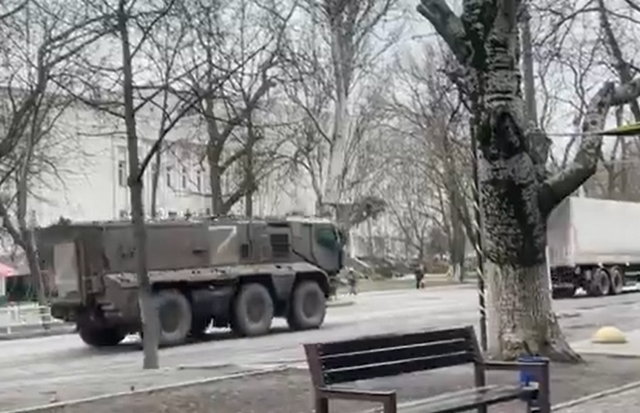
In June, she was informed that she was on a wanted list, requiring her to be even more cautious. However, working while hiding in a basement would be impossible, so she had to strike a delicate balance.
— Our channel suggested concealing my face and using a different name on air. I refused because it made no sense. All our local collaborators knew me well. They saw me on the streets; they could easily recognize me by my voice, work style, and more. If they named me differently on air, it would only reveal that Slobodyan was working under the nickname Ivanenko. But that wouldn’t change anything, — explained Angela Slobodyan.
“We heard the cries of these people. We lived with these sounds.”
She was apprehended on July 5th in the home of a scientist acquaintance where she was preparing to go live. Armed military personnel in balaclavas climbed over the fence and stormed the residence. They put the homeowner and the journalist into separate vehicles, covered their heads with garbage bags, and drove them to the city’s temporary detention center.
— During interrogations, they claimed she was supposed to receive “accreditation” from the occupiers. As a Ukrainian journalist, she was expected to accredit herself to an unknown entity. They didn’t appreciate that media workers, reporting truthfully about life in Kherson under occupation, defended their civil and human rights—considering them perilous.
Additionally, Angela Slobodyan was accused of secretly working for the Security Service of Ukraine, suggesting her journalistic activities were a mere “cover.” She tried to explain that she had been working on television for 12 years, which seemed excessive for a “cover.” She offered the occupiers to verify this by checking her YouTube presence, but the interrogator insisted on his narrative. She never saw the man during the interrogations; they all wore dirty, long hand-knit caps pulled down over their heads. The cap remained on during the entire interrogation.
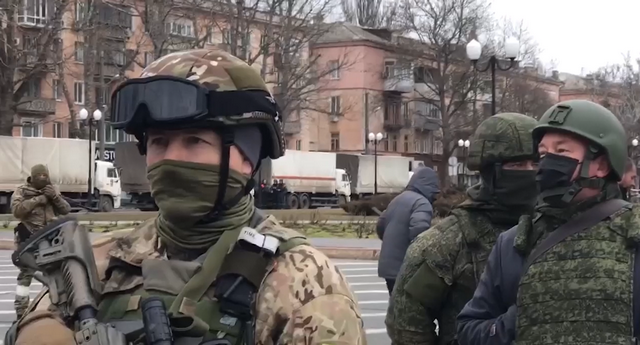
– Fortunately, during my 31 days of imprisonment, I only had three interrogations. By the way, in our cell, there were two women who faced none – they were held as hostages to pressure their close ones, — shares Angela Slobodyan.
The psychological pressure was intense. Five women were kept in a cell designed for three, forcing them to share beds. Beyond their doors, they constantly heard the screams of men being beaten, tortured, and subjected to electric shocks.
— We heard the cries of these people. We lived with these sounds. It was horrifying,— recounts the journalist. — The prison held both civilians and military. They forced people to confess to ‘crimes’ against the occupiers, naming other group members and those who gave orders. Under such torture, even those who knew nothing began to speak.
The Kherson TDF detainees had no legal assistance. Without permission, they forcibly took fingerprints and DNA samples “for the Russian Federation’s database.” There were no food deliveries because no one knew Angela Slobodyan’s location – she was not allowed to contact her sons or inform her relatives of her captivity.
“Starving, one can survive, but eating those ‘macaroni’ – no.”
They were fed once a day, in the morning.
— For the first ten days, our ‘menu’ included buckwheat, pasta, and a mixed porridge from different cereals, sold for animal feeding in the market. The rest of the days, they gave us just the pasta – a mass of boiled pasta products. The last five days before my release, I couldn’t eat it anymore and went hungry. Because a person can survive on hunger for some time, but eating those ‘macaroni’ – no, — explains the journalist. — In addition to ‘breakfast,’ they sometimes provided a warm drink in the evening from the remnants of tea without sugar.
Temporary detention centers are not meant for long-term residence. Yet, those Angela knew were held in the TDF for an average of over a month. The cell was infested with a large number of cockroaches, and no one addressed the issue. Women were given no hygiene products.
— Two weeks after my detention, Russian military personnel replaced the prison staff with specialists from the so-called ‘DPR` [Donetsk People Republic]. They started checking if there was ventilation in the cell and realized there wasn’t. It was summer, with temperatures reaching forty degrees. It was horrifying, — recalls the journalist.
Detainees were not provided with any medical assistance.
— When I was detained, despite my disability, they didn’t allow me to take my medication. They didn’t provide any medicine when I requested it from the prison authorities. We complained about feeling unwell, but we never saw a doctor, — says the journalist. — A few days before my release, a woman who was imprisoned because her son was a volunteer became very ill. We started banging, shouting that she fainted. They took her away. Later, I learned that she died in the hospital due to a stroke.
After her release, Angela Mykolayivna learned about the fate of her fellow inmates. Two managed to be released and moved to free areas of Ukraine, while the third was held for more than three months. During the evacuation of Russians from Kherson, she was taken to the Left Bank. There she was released – without money, belongings, or documents. Returning to Kherson was possible only miraculously.
— Releasing people far from home without funds, without keys – this is a common practice of Russian occupiers. Moreover, often there was nowhere to return. When a person was seized, the occupiers came to their home and looted it. The same happened with my residence – they took electronics and personal items, — says the journalist.
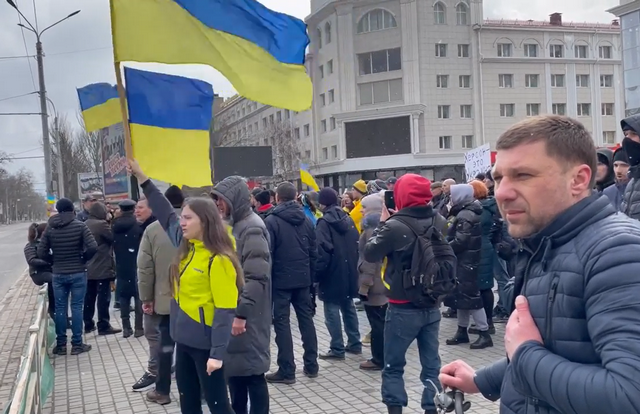
“I am still a journalist”
At the beginning of August, on the 31st day of her captivity, after an interrogation, Angela Mykolayivna was released. She had serious health issues, and the occupiers decided to avoid another fatality.
— I called my younger son from a neighbor’s phone, told him what happened to me, and that I was now free… Of course, he couldn’t hold back tears… After all, his mom is alive, mom is free! — shares the journalist.
Angela Mykolayivna wanted to stay in Kherson until the end of the occupation but realized it was no longer safe. To survive and inform others, she spent three weeks secretly preparing to leave the city, hiding with acquaintances despite lacking permission to exit the occupied area.
— It was a dangerous departure for me… But I managed it. On August 31, I was already in the government-controlled part of Ukraine, — says Angela Slobodyan.
Last week, the journalist visited the now-deoccupied Kherson. She went to the TDF, peered into the cell where she was held.
— Interestingly, even the TDF was robbed by the occupiers. Specifically, they took the mats we slept on and the doors, — marvels Angela Mykolayivna.
Today, looking back at the past, working in the conditions of occupation and captivity, Angela Slobodyan considers it valuable experience. However, this experience has not significantly impacted her work as a journalist.
— I work as I did in the media, and I still do. After leaving the captivity, I was surprised to learn that during this time, my ‘Ukraine’ TV channel was liquidated, so I was left without a job, — says the journalist. — But soon our team created a new TV project, ‘We Are Ukraine,’ where I was invited as an editor. I am still a journalist. During my trip to Kherson, I prepared new materials. I make stories, engage in my work.
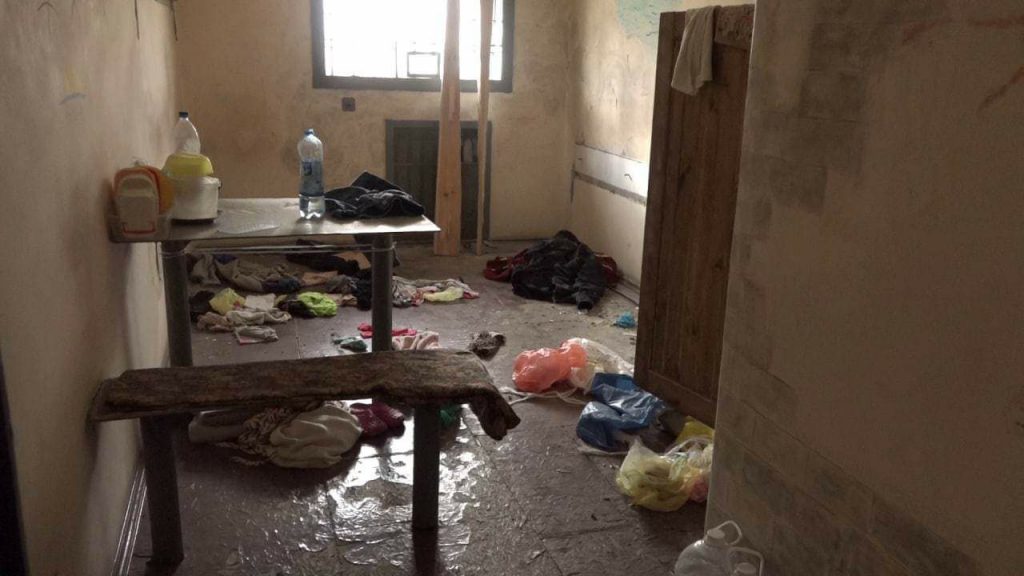
This series, titled Shot Freedom of Speech, is created as part of a project Drawing Ukrainian And International Audience’s Attention To Serious Violations Of Human Rights And Crimes Against Journalists And Mass Media By The Russian Federation, which is performed by the National Union of Journalists of Ukraine, with support from the Swedish non-profit organization Civil Rights Defenders.
JOURNALISTS ARE IMPORTANT. Stories of Life and Work in Conditions of War is a cycle of materials prepared by the team of the NUJU with the support of the Swedish human rights organization Civil Rights Defenders.
#CRD

 THE NATIONAL UNION OF
JOURNALISTS OF UKRAINE
THE NATIONAL UNION OF
JOURNALISTS OF UKRAINE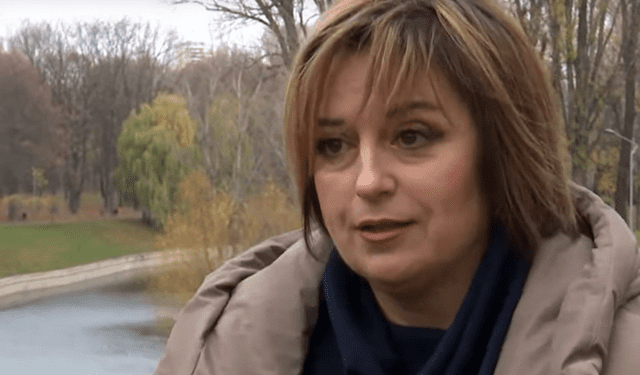
















Discussion about this post